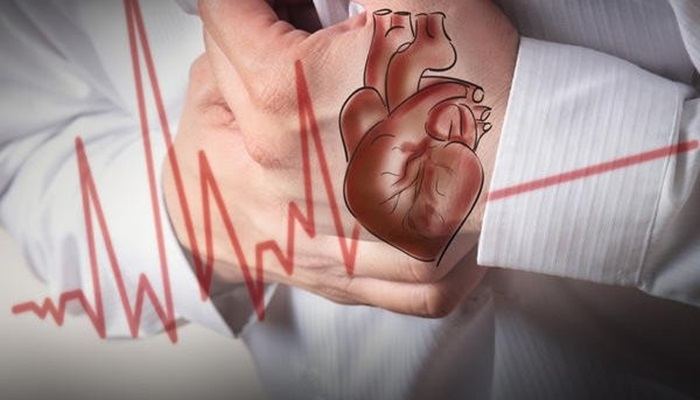Heart failure is a chronic and progressive condition where the heart struggles to pump blood effectively throughout the body. As the disease advances, it’s crucial to recognize the signs that your heart failure may be worsening so you can seek prompt medical attention and make necessary adjustments to your treatment plan. In this article, we’ll discuss the common symptoms to watch out for and provide guidance on when to contact your healthcare provider.
How Do I Know If My Heart Failure Is Getting Worse
Shortness of Breath
One of the most noticeable signs of worsening heart failure is increased shortness of breath, also known as dyspnea. As the heart’s pumping ability declines, fluid can accumulate in the lungs, making it difficult to breathe. Initially, shortness of breath may only occur during physical activity, but as the condition progresses, it can also happen during periods of rest or even during sleep, leading to interrupted sleep patterns and anxiety.
Fatigue and Weakness
Persistent fatigue and overall body weakness are other common indicators of worsening heart failure. As the heart struggles to meet the body’s demands by supplying enough blood to the cells, individuals may feel tired and exhausted, even with minimal physical activity. This can significantly impact their quality of life and ability to perform daily tasks.
Swelling
Swelling, particularly in the legs, ankles, and feet, is a classic sign of worsening heart failure. When the heart’s pumping function weakens, blood flow can slow down, and fluid may accumulate in the veins of the legs and feet, resulting in swelling. Patients may notice that their shoes or pants feel tighter, or they may experience a feeling of heaviness or fullness in their legs.
SEE ALSO: Do You Sleep A Lot with Heart Failure?
Chest Discomfort
Chest discomfort or pain can also indicate that heart failure is worsening. While chest pain is not always present in heart failure, some patients may experience a feeling of pressure, tightness, or discomfort in the chest, especially during physical activity. If you experience any new or worsening chest symptoms, it’s essential to seek medical attention promptly.
Coughing and Wheezing
A persistent cough or wheezing can be a sign of fluid buildup in the lungs due to worsening heart failure. The excess fluid can irritate the airways, leading to frequent coughing, especially at night or when lying down.
Sudden Weight Gain
Rapid and unexplained weight gain over a short period can be a warning sign of worsening heart failure. As the heart’s pumping ability declines, fluid can accumulate in the body, leading to sudden weight gain. Patients are typically advised to weigh themselves regularly and report any significant weight changes to their healthcare provider.
Reduced Exercise Tolerance
As heart failure progresses, patients may notice a decrease in their ability to tolerate physical activity. Activities that were once easy may now cause shortness of breath, fatigue, or chest discomfort, leading to a reduced exercise tolerance.
Irregular Heartbeat
An irregular or rapid heartbeat, known as an arrhythmia, can be a sign of worsening heart failure. Some patients may feel their heart racing or pounding, especially during periods of rest.
Difficulty Sleeping
Difficulty sleeping, particularly when lying flat, can be a symptom of worsening heart failure. Patients may experience shortness of breath or a feeling of suffocation when lying down, forcing them to sleep propped up with pillows or in a recliner.
Confusion and Mental Changes
In advanced stages of heart failure, patients may experience confusion, memory problems, or other mental changes. This can be due to reduced blood flow to the brain or the effects of medications used to treat heart failure.
When to Seek Medical Attention
If you notice any of these symptoms or a combination of them, it’s crucial to contact your healthcare provider as soon as possible. Heart failure is a progressive condition, and early intervention can help slow down the disease’s progression and improve your quality of life.
Some signs that your heart failure may be worsening and require immediate medical attention include:
Sudden or severe shortness of breath=
Chest pain or discomfort
Rapid or irregular heartbeat
Fainting or dizziness
Severe swelling in the legs, ankles, or feet
Sudden weight gain of more than 2-3 pounds in a 24-hour period or 5 pounds in a week
If you experience any of these symptoms, don’t hesitate to contact your healthcare provider or seek emergency medical care. Prompt treatment can help prevent complications and improve your overall prognosis.
Managing Worsening Heart Failure
If your healthcare provider determines that your heart failure is worsening, they may recommend adjustments to your treatment plan.
This may include:
Modifying your medication dosage or adding new medications
Recommending lifestyle changes, such as a low-sodium diet, regular exercise, and weight management
Referring you to a heart failure specialist for advanced therapies, such as implantable devices or surgery
It’s essential to follow your healthcare provider’s recommendations and to actively participate in your care. This may include:
Monitoring your symptoms and reporting any changes to your healthcare provider
Keeping track of your daily weight and reporting any sudden changes
Taking your medications as prescribed and reporting any side effects
Maintaining a healthy lifestyle, including a low-sodium diet, regular exercise, and stress management
Conclusion
Recognizing the signs of worsening heart failure is crucial for seeking prompt medical attention and making necessary adjustments to your treatment plan. If you notice any changes in your symptoms, don’t hesitate to contact your healthcare provider. By staying vigilant and actively managing your condition, you can help maintain your health and improve your quality of life.


